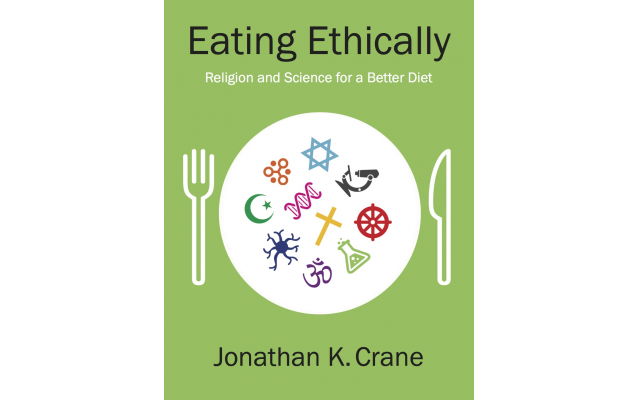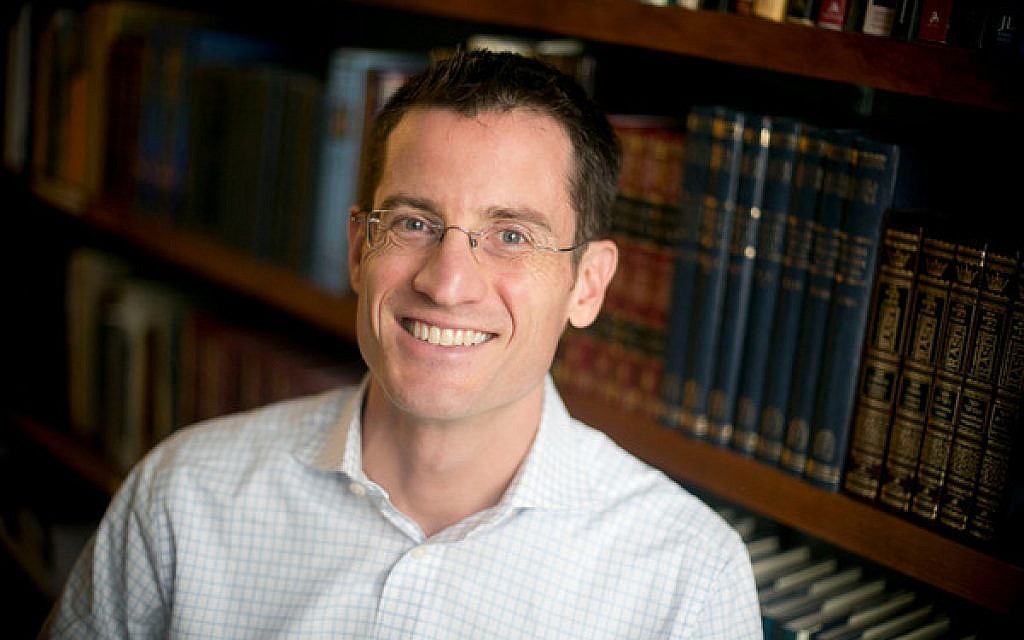Emory’s Crane Tackles Why Eating Less Matters
Emory professor Jonathan Crane on why Goldilocks principle is “just right” to control tendency to overeat and how Gandhi might weigh in.
After 37 years with the Atlanta Journal-Constitution and now with the AJT, , Jaffe’s focus is lifestyle, art, dining, fashion, and community events with emphasis on Jewish movers and shakers.

I’m always impressed with the treasure trove of Jewish talent and academics residing in our own backyard at Emory University. Dr. Jonathan Crane, the Raymond F. Schinazi scholar in bioethics and Jewish thought at Emory Center for Ethics, is also an associate professor of medicine at Emory’s School of Medicine, and an associate professor of religion at Emory College.
His new book, “Eating Ethically: Religion and Science for a Better Diet,” explores why our eating has become so troublesome. What does it mean to be full? How can we make contemporary eating more adaptive, healthy and ethical?
“What I found in my research is that all three fields — philosophy, physiology and theology — agree that it is far better for an individual person, and for society generally, if one eats less.” Many of the foods in the American diet are what Crane calls “hyper-palatable” (very tasty), stuffed with salts, sugars and fats, or manufactured synthetics meant to imitate the flavors/textures we crave. Often nutritive value is negligible,” he says, “they trick us into eating beyond that which our bodies can actually benefit.”
Jaffe: How does Judaism intersect in your book?
Crane: Judaism has been concerned with eating well since creation stories in the Bible. For thousands of years Jews generated rich wisdom about eating well. Some might think this refers to kashrut, a complex set of rules about what (not) to consume, how it should be grown, produced and cooked. Kashrut, however, is more about food than eating. My book highlights millennia-old Jewish discussions about eating, what it means to be an eater, and what eating well entails. From the Torah to the Talmud, from midrashim to Maimonides, from kabbalah to contemporary Jewish philosophy—Jewish conversations about eating well challenge us to embrace that as unique eaters of this world, we each need to eat carefully and conscientiously.

Jaffe: Asians are known for the concept of eating until 80 percent full. What new have you added to this?
Crane: The eating strategy the Abrahamic traditions — Judaism, Christianity and Islam — consider holy is one that avoids the extremes, at least chronically. All traditions encourage feasting and fasting on certain occasions. None promote the chronic excessive consumption pushed upon us by the standard American diet, which orients us to eat according to external cues like convenience, price and frequency. Snacking is one example of how industry and culture pressure us to eat outside of meals and more than is bodily necessary.
Jaffe: Do humans have a natural craving for fats and sugars?
Crane: Yes, and salts, because our bodies need these macronutrients to be healthy. Chronically eating too little or too much of them harms our bodies. We need to eat these – among many other nutrient and vitamin-rich foods – according to the Goldilocks principle of “just right.” Each of us needs to eat the “just right” amount of fats, sugars and salts that are appropriate for our own bodies. A toddler should not eat the same as an Olympic athlete.
Jaffe: You are an expert on Gandhian thought?
Crane: While living in India, I studied how Gandhi changed society without resorting to violence. His incredible transformations were built upon an understanding that speaking the truth is powerful, and that the enemy is not a person or institution, but certain ideas and practices. Instead of rousing defensiveness by attacking people, he demonstrated that articulating the truth inspires people to abandon harmful ideas and behaviors and embrace ones that are more just, prosocial and healthy. “Eating Ethically” speaks the truth about eating well where religions, science and philosophy agree that eating well is holy, healthy and wise — and, for the most part, personally achievable.
Jaffe: What are some surprising experiences from your classes?
Crane: Some of my students candidly admitted they had negligible cooking skills. They did not know how to read a recipe, how to navigate grocery stores to find the healthiest foods, or how to cook a dish, much less a meal. Because during the course they had to collaborate to develop meals based on each week’s theme, all students emerged with enhanced critical life skills like shopping, hosting, chopping, and cleaning up. They left empowered with greater appreciation of the complexity of our food landscape.
Jaffe: Is your wife a good cook?
Crane: My wife, Lindy Miller, and I share shopping, cooking and cleaning responsibilities, and do them with our boys. Our 5-year-old makes scrambled eggs. Our 8-year-old calculates the measurements for banana muffins. Our 10-year-old selects fruits and vegetables at the market. Their curiosity, enthusiasm and sometimes odd palate helps make cooking and eating more enjoyable. Human civilization emerged by cooking and eating together.
We work hard to continue that tasty project!



comments